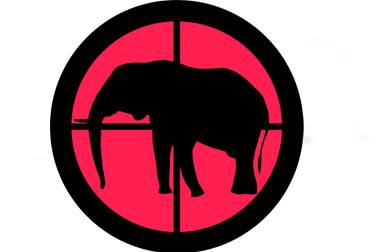 By TreeLiving
By TreeLiving
Poaching refers to illegal hunting, killing or capturing of animals. In other words, it implies the killing and/or capturing of animals contrary to local and international conservation and wildlife management laws. Even fishing is considered illegal during some seasons.
As per wildlife and animal protection laws, killing of ani mals is considered ‘poaching’ where:
- The hunter does not possess a valid permit (for fishing, etc)
- The hunter illegally sells the animal or animal organs for monetary profit.
- The hunter uses an illegal weapon to kill the animal
- The animal was killed on a private or restricted land.
- Illegal and cruel means were used to kill the animal – baiting a ground while hunting animals, using spotlights to stun or paralyze an animal, hunting from a moving vehicle, watercraft or aircraft.
- The animal is protected by law or has been listed as endangered or extinct.
As a term, ‘poaching’ is used to refer to the killing of wild animals. Stealing or killing domestic animals can be considered a crime as per local and national laws but it is not considered ‘poaching’. Poaching may also refer to the taking of animals from a protected wildlife sanctuary such as a national park, game reserve, or zoo. Most countries enforce various sanctions on the hunting of wild animals, and international controls, such as bans, restrictions and monitored trade, are aimed at controlling poaching. However, this has not been enough.
Humans and their ancestors have hunted for over 400,000 years. While primitive humans relied upon hunting primarily for food, the agricultural revolution (approximately 10,000 years ago) minimised the need for ‘survival hunting’ in most parts of the world. However, hunting did not stop, for several reasons, and poaching continued in lands where hunting is a part of economy or culture. There are people who sell fur, hide, ivory, horn, teeth and bones to dealers who in turn use these to make clothes, jewelry, or for medicinal purposes.
The obvious impact of poaching is the extinction of different animal species. The reducing number of threatened animals such as elephants, tigers, water rhinos, impalas and hippopotamus is a cause of concern. Extinction of wild animals is often also accompanied by the loss of forests and green cover and this has had severe repercussions for the climate and the environment as well.
Today poaching is seen by many as highly unethical. International animal welfare organizations such as PETA (People for Ethical Treatment of Animals) have been campaigning against this cruel practice. The members of these organisations raise their voices against the use of fur, leather and other animal based products.
They also seek help from government bodies at local, state and national levels for strict enforcement of laws against poaching. World Wildlife Fund (WWF) is another active organization working to save wildlife and endangered species.
To discourage the practice of poaching, strict laws need to be enforced by government authorities. Wildlife needs to be protected from extinction and further endangerment by perpetuation (breeding of species by setting habitat and living conditions) of rare species of animals. Wildlife should be preserved and the building of sanctuaries, national parks, and biosphere reserves, help this process, while fighting for stronger protection laws on an individual level should be a priority as well.

